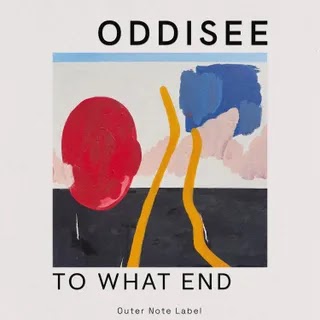On his 10th solo studio album, the D.C.-based underground rap vet unpacks emotional baggage and asks what—if anything—he’s willing to compromise for the sake of success.
As long as he can create how he wants, Oddisee has been content to exist on rap’s fringes. The Brooklyn-via-Washington, D.C. rapper-producer has treated his independent music career like a small business long before that became the norm, with pragmatic, athletically rapped songs and a busy touring schedule. You won’t find him hung up on industry cred: “Being overlooked did wonders for my esteem,” he says on 2015’s “Belong to the World,” one of several songs about the benefits of niche stardom. Even at his youngest and boldest, on albums like 2008’s 101 and 2009’s Mental Liberation, his boasts were tethered to the reality of his humble upbringing and D.C.-area surroundings. He went from merely making hip-hop cool again through pure boom-bap revivalism to boiling down politics, racism, and eventually, the comforts of family life to raps as terse and practical as the amorphous live-band production he’s slowly come to favor.
But the vigor of his early rap days lingers, powering a begrudging desire for respect. On “The Start of Something,” the intro to his 10th solo studio album To What End, Oddisee retraces his steps over a nearly 20-year career and gives himself a pep talk before the next sprint. “How I’m seen and how I’m heard is not the reason why I’m working,” he says, doubling down: “I’m going off, how to make a million without going soft.” For the first time, he sounds like he’s trying to convince himself as much as the listener. To What End goes beyond being raw and honest about life, society, or even hip-hop; it’s too busy dissecting the drive to do so in the first place.
Thematically, the album explores the nature of ambition and how far we’ll go to get what we want—a career, a relationship, peace of mind. As his work’s become more refined, Oddisee has embraced being the rap game Sidney Poitier, an everyman folding his own life experiences into flows that recall the wanderlust of Kendrick Lamar as much as the reverence of Little Brother. His writing was never withholding, but he’s rarely been this personal. Juxtaposed with the clean, peppy beats, his newfound openness makes some of these revelations uncomfortable, even jarring. “People Watching” is the most explicit of the bunch, taking an ax to forced politeness and ending with one of his bluntest confessions: “Became an entertainer as to hide in plain sight…Rhymes are without filter, in real life I keep it hush/I feel I’ve said enough, it’s time to step back on the mic.” But gentler moments cut the deepest. “Many Hats,” which was inspired by his first-ever therapy sessions, doesn’t shy away from talk of work burnout and panic attacks; “Choices” confronts the uphill battle of avoiding your parents’ mistakes. It’s not particularly theatrical, but it’s the closest we’ll get to seeing him on the ropes.
To What End isn’t all about unpacking emotional baggage. Oddisee finds balance in lighter scenes, stealing a moment to write a rap while his kids are asleep on “More to Go” and kicking references to Slick Rick, Insecure, and The Wire in a cipher with guest Toine Jameson on “Bartenders.” To What End boasts the most vocal features on any of his releases since 2013’s Tangible Dream—certainly it’s the only album in recent memory where Freeway’s gruff wisdom shares space with Phonte’s effortless truisms and Bilal’s jazzy moans. That variety also extends to the beats, a series of MIDI arrangements replayed by his band Good Company that nonetheless groove and thump in ways that transcend regular live-band hip-hop.
This method started as a curiosity on 2015’s The Good Fight and solidifies further on To What End. It’s a breezy, confident style that blurs the lines between analog and digital, modern and vintage. Disembodied voices are warped to sound like samples. The bass and synthetic keys on “Ghetto to Meadow” play double-dutch with a fast-paced drumline perfectly suited for Oddisee and Freeway’s brusque reflections on outrunning poverty. “Work to Do” and “Bogarde” dip into Raphael Saadiq-style funk and rattling go-go percussion, respectively, while “How Far,” “Bartenders,” and “People Watching” tweak Oddisee’s love for boom-bap with live embellishments. A handful of the beats skew generic—closing tracks “The Way,” with its sleepy Wreckx-N-Effect sample, and “Race,” in particular, play like car-commercial music—but To What End avoids defaulting to a rapper spitting with a backing band.
To What End doesn’t skirt around the anxiety that comes with being an artist in Oddisee’s position. He’s a sync licensing darling and a veteran of the indie touring scene who, in spite of himself, wouldn’t mind just a little more exposure, a little more clout. While he doesn’t have all the answers, he does stumble across one: How do you reconcile the drive to succeed on your own terms when your ear for music grows increasingly panoramic? You burrow deeper into yourself, hoping to be surprised by the next layer.



0 comments:
Post a Comment